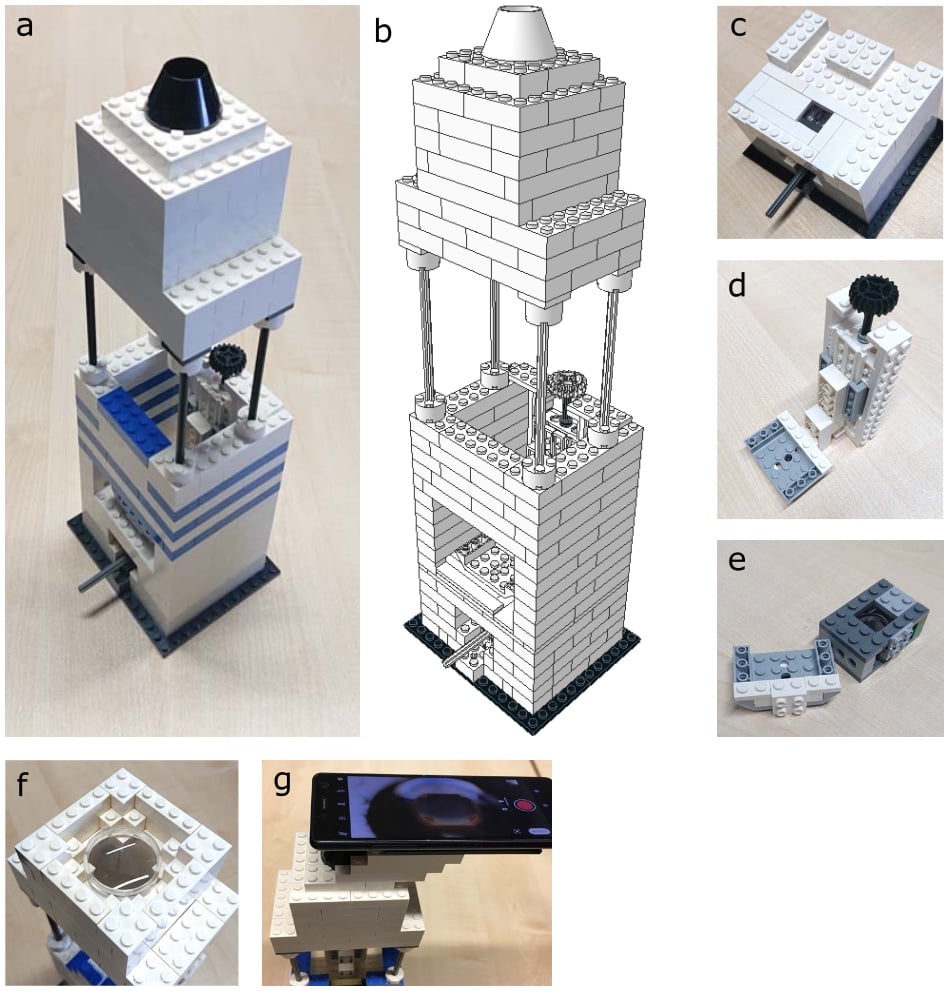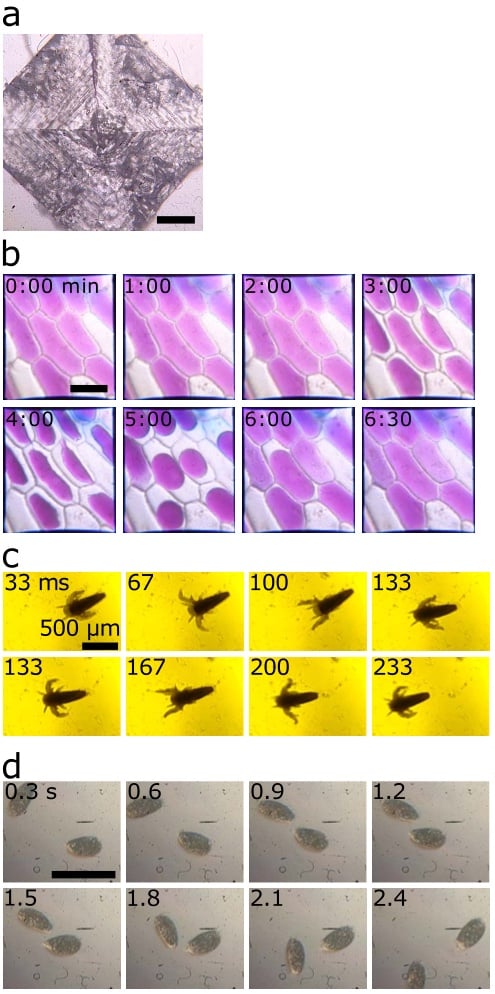You Can Make a High-Resolution Microscope with an iPhone and LEGO
![]()
Researchers in Germany have found a way to take old iPhones — specifically an iPhone 5 — and combine them with LEGO to make a DIY high-resolution microscope designed for young students.
As spotted by DPReview, researchers Bart E. Vos, Emil Betz Blesa and Timo Betz from Georg August University Göttingen and Munster University in Germany set out to design a high-resolution microscope that was affordable and simple enough for anyone to build. Since toy microscopes — or any microscope that is designed to be used by children — aren’t very effective and specialized versions are very expensive, the goal was to create a usable one that would address both these issues using easily-found parts.
The researchers state that their goal is to “introduce a microscope to individual students in a classroom setting, both as a scientific tool to access the micro-world and to facilitate the understanding of fundamental principles of the optical components of a microscope in a playful and motivating, yet precise approach. By basing the design on LEGO, we aim to make the microscope modular, cheap, and inspiring.”

The entire build is designed to be approachable and cheap. The iPhone 5 is now eight years old and as such, models can be purchased extremely inexpensively, making it an ideal candidate for the build. Most homes (especially with children) already have stocks of LEGO pieces readily available and, if not, pieces can be picked up in bulk from various sources for relatively low prices.
Taking an iPhone 5 and combining it with some LEGO pieces, the researchers assembled a high-resolution microscope that can be made by basically anyone who can follow LEGO instructions with a price that is cheaper than most toy microscopes on the market.

The report states the team hopes that the LEGO microscope will help make scientific discovery more accessible to children worldwide, since every child deserves the opportunity to learn about the world around them including the parts that cannot be seen with the naked eye. Growing this scientific understanding is especially important for decision-making and problem-solving in everyday life.
“We wanted to find a way to nurture natural curiosity, help people grasp fundamental principles and see the potential of science,” says Betz.

The plans for the LEGO Microscope are available for free to anyone and the team has also made their paper publically available.